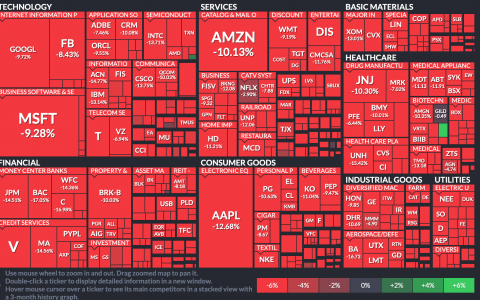
(Forbes) Given that many good companies lost between a quarter and half of their value amid the outbreak of the coronavirus pandemic in March, and their debt may now yield many multiples of a government bond, it’s no surprise to see investors lining up to buy the dip. Distressed debt investor Howard Marks and his firm’s hundreds of analysts and portfolio managers are sharpening their pencils on a shopping list of bargain buys, but the billionaire investor preaches a defensive approach to battered-down markets.
In a new letter to clients, Marks says that the unknown unknowns of the pandemic and its impact on economy are so great investors should practice cautious investing. A recent rally last week, Marks says, seems to have reflected investors’ best case expectations for how quickly the health system can contain the spread of coronavirus and handle the sick, and for how fast the economy will rebound.
“I would say assets were priced fairly on Friday for the optimistic case but didn’t give enough scope for the possibility of worsening news. Thus my reaction to all the above is to expect asset prices to decline,” Marks said, “You may or may not feel there’s still time to increase defensiveness ahead of potentially negative developments. But the most important thing is to be ready to respond and take advantage of declines.”
It’s a view that other well-respected contemporaries on Wall Street seem to be taking.
In recent appearances on CNBC, hedge fund legends Paul Tudor Jones and David Tepper have laid out what they still need to see in both containment and financial support for the economy before they dive into the market. Tudor Jones protected his firm from the market’s coronavirus-driven decline as he analyzed the rate of change in it spread in China in January and February, and that same analytical lens is likely to clarify when recovery begins to set in. Tepper is closely watching the effectiveness of the government’s various support facilities for businesses and financial markets.
Billionaire Steven A. Cohen of Point72 Asset Management also told his employees he’s taking a wait-and-see approach to buying the market’s dip, Reuters CRI reported on Tuesday. “Markets don’t come back in a straight line; after an earthquake there are tremors,” he said in his Friday memo, according to Reuters, “We need to continue to be disciplined. We are seeing plenty of opportunities to generate returns, but I don’t want us taking undue risks.”
On a research call late on Tuesday afternoon, Jeffrey Gundlach of DoubleLine Capital laid out an analysis that suggests markets might re-test their March lows.
All of these investors continue to grapple with the magnitude of the business disruption caused by the pandemic. Will unemployment skyrocket to 10%, or 20%? Will GDP contract by similar measures? All of these potential outcomes have little precedent.
Says Marks: “In the Global Financial Crisis, I worried about a downward cascade of financial news, and about the implications for the economy of serial bankruptcies among financial institutions. But everyday life was unchanged from what it had been, and there was no obvious threat to life and limb.”
“Today the range of negative outcomes seems much wider, as described above. Social isolation, disease and death, economic contraction, enormous reliance on government action, and uncertainty about the long-term effects are all with us, and the main questions surround how far they will go.”
Thus he’s still preaching defense and patience, and readying a list of businesses to buy at what could be lower prices.



